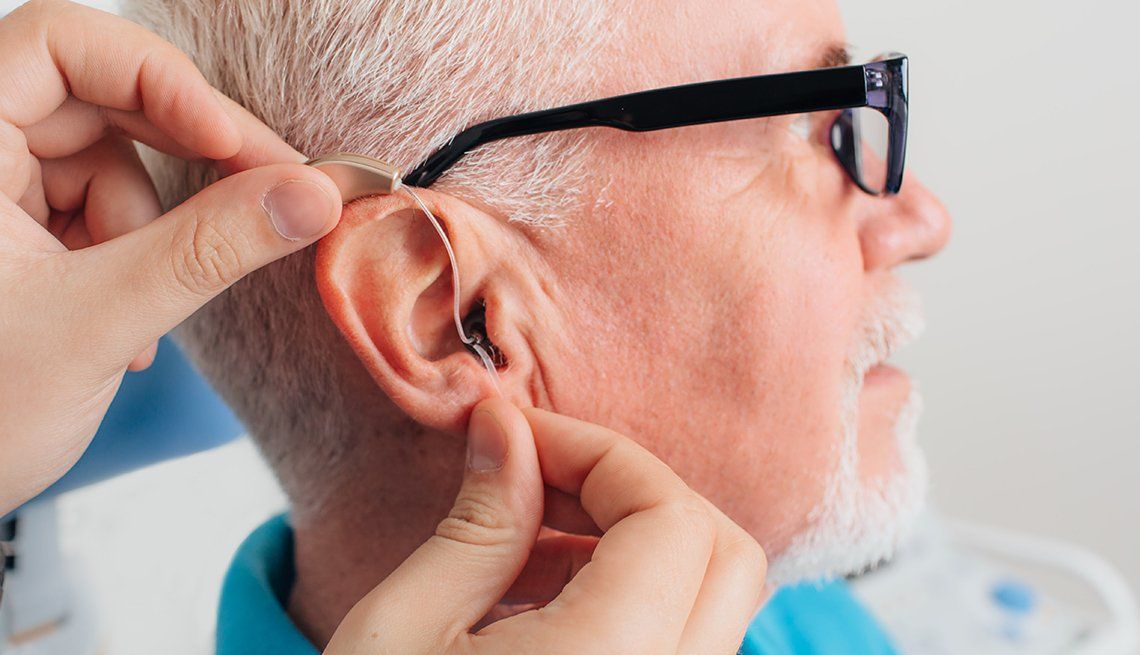The link between hearing loss and dementia
Todd Dean • March 11, 2020
There have been a lot of articles released on the relationship between hearing loss and dementia, most recently, this December 2019 New York Times Article, written by Jane Brody, “For Better Brain Health, Preserve Your Hearing” which highlights the importance of hearing testing and wearing hearing aids if you have a hearing loss. Let’s dive into some of the theories behind the relationship between hearing loss and dementia.
Brain cell stimulation.
There is a theory that if you are not adequately stimulating the brain with auditory input, the brain cells responsible for processing sound can shrink. This is supported by a study from Dr. Frank Lin at Johns Hopkins and the National Institute on Aging (2014). Lin and his colleagues gave an MRI to 126 participants every year for ten years, some with normal hearing, and some with at least a mild hearing loss. The results of the study showed that those individuals with impaired hearing, lost “an additional cubic centimeter of brain tissue each year compared to those with normal hearing.” (Lin, 2014)
Social isolation.
In the field of gerontology there has been many studies supporting the theory that social isolation is one of the top predictors for morbidity and mortality in older adults. There was an amazing Ted talk by Susan Pinker, who is a medical psychologist about how the secret to living longer may be your social life. But why? The research suggests that socially isolated people have an increased upregulation of pro- inflammatory genes and increased inflammation, which causes negative health effects in the body and stimulates the aging process (Cacioppo, 2011; Cole et. Al., 2007)
The final link between hearing loss and dementia is cognitive load.
According to Kahneman (1973), each individual has a pool of cognitive resources for thinking, memory, and planning. As we age, we can lose some of these resources because the brain shrinks in volume (Peters, 2006). If you have a hearing loss, and decreased cognitive resources, this can overwhelm the brain because it is not receiving the proper input from the ears and it has to work harder to process that signal. Studies have shown that the brain will actually re allocate resources that are meant for other processes such as thinking, memory or planning, in order help process speech, and in the end that could compromise other brain functions such as short term and long term memory.
What should I take from the research?
Dr. Frank Lin (2014) suggests that
“"If you want to address hearing loss well, you want to do it sooner rather than later. If hearing loss is potentially contributing to these differences we're seeing on MRI, you want to treat it before these brain structural changes take place."
The way that I interpret this is three-fold:
1) Get your hearing tested as soon as you suspect you have a hearing loss and for sure by the age of 60
2) If you have a hearing loss, get fit with hearing aids sooner rather than later, before those brain structural changes take place
3) Stay engaged, a recent Harvard Health article revealed that people who have strong social connections tend to live longer and healthier lives.
A hearing test is critical in figuring out if you have a hearing loss and what the causes of your hearing issues could be. We also try to connect the impacts of your hearing loss with the challenges you face in your daily life. Following your test, our South Oakville Hearing and Audiology Clinic professionals will provide a complete hearing aid consultation to review your results and discuss the specific hearing challenges you face. We will make recommendations for your treatment based on your hearing loss.

Hearing aids are among the best-known treatments for hearing loss because they can be effective for a wide range of hearing challenges. They can improve the quality and balance of sounds that are sent to your brain, making it easier for your brain to “hear.” They can bring in soft sounds from your environment that you may not have heard without the use of hearing aids, and they can keep you engaged in conversations, especially in the presence of background noise. But can hearing aids prevent hearing loss? The ways that hearing aids help your brain to hear can contribute to long-term hearing health. They aren’t expected to prevent hearing loss, but they can stimulate and maintain the neurological pathways related to hearing. Proper selection, fitting and use of hearing aids can not only assist with hearing challenges today, but can contribute to healthier hearing in the future. Benefits of hearing aids The goal of hearing aids is to minimize the impacts of hearing challenges and assist with listening both in quiet and in noisy environments. By making it easier to listen and comprehend, hearing aids have perceivable and unperceivable benefits such as: Reduced cognitive effort to hear and understand sounds Improved relationships and social connections Improved mental health Stimulation of the neurological pathways related to hearing Better spatial awareness and reduced risk of falls These are the benefits of hearing aids that are often the main motivators to consider hearing aids. Managing hearing loss contributes to healthier relationships, mental health, and well-being. Many of these benefits are related to the brain and its role in hearing. This connection between the ears and the brain can also contribute to healthier hearing in the future and potentially the prevention of further hearing loss. To understand how hearing aids can contribute to the prevention of hearing loss, it’s important to consider how hearing aids are designed to operate. How hearing aids help Hearing loss is often the result of damage to the tiny hair cells in the ear. This damage can be caused by loud noises, ageing, disease, and many other factors. Damage to the tiny hair cells reduces the ears ability to detect and capture sounds. When it sends sound signals to the brain for processing, those signals may be weak or incomplete. Hearing aids are designed to improve the strength and clarity of the sounds that you have difficulty hearing. They can increase or decrease the volume of specific pitches (think of an equalizer), which in turn ensures the brain receives more balanced and complete signals. The brain’s job in hearing The brain interprets the sound signals it receives from the ears. Over the years, our brains have learned to recognize familiar sounds, filter out unwanted noises, determine the direction sounds are coming from and even focus on the sounds we want to hear, this is known as “selective attention.” But the brain has no control over the sound signals it receives from the ears. If the signals are weak or incomplete, it takes more cognitive effort to hear. Fortunately, the brain is adaptable. It can fill in gaps or try to interpret weak signals based on sounds that it has heard before. For example, if you move to a new home that is located near a busy road, the traffic noise may be a nuisance. Over time, your brain learns that these sounds are unimportant and tunes them out. You can also learn which sounds are important. Many parents become hypersensitive to the sounds of their newborn child and will recognize those sounds even in an extremely a noisy environment. Hearing aids support the brain Hearing aids improve the quality of the sound signals that are sent to the brain. The higher the quality of the signals, the easier it is for your brain to interpret. Your brain requires less cognitive effort to listen and comprehend. This explains why untreated hearing loss is associated with being more tired at the end of the day and higher rates of depression. Since the brain adapts to the signals it is receiving, higher quality signals can nurture old or new neurological pathways related to hearing. When you first start wearing hearing aids, it sometimes takes time to nurture these new pathways and adjust to new stimulation. Over time, appropriate stimulation contributes to maintaining the neurological pathways that you rely on for hearing. Minimizing future hearing loss Properly selected and fitted hearing aids deliver stronger and more balanced signals to the brain. This promotes stimulation of the brain pathways specific to hearing, which can contribute to healthier hearing in the future. Since hearing loss is commonly the result of various factors, hearing aids will not prevent all hearing challenges in the future. But they can certainly contribute to healthier hearing in the short and long term. Follow these steps to minimize future hearing loss: Understand the state of your hearing today: Book an appointment to get a hearing test to determine if hearing loss is present. Avoid preventable damage: Hearing protection during any loud activities can minimize damage to your ears. Select appropriate hearing aids: If you have hearing challenges and will benefit from hearing aids, work with an audiologist or hearing instrument specialist to select the technology that will deliver appropriate amplification and neurological stimulation. Get professional support: Ongoing professional support will ensure your hearing aids are properly programmed and fitted. The more you know about your hearing health, the better decisions you can make to manage your current hearing challenges and prevent future ones. Our team specializes in custom hearing solutions that consider the short and long-term benefits of hearing aids.

